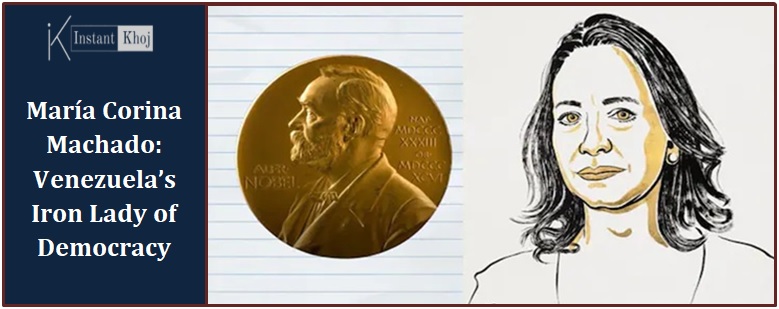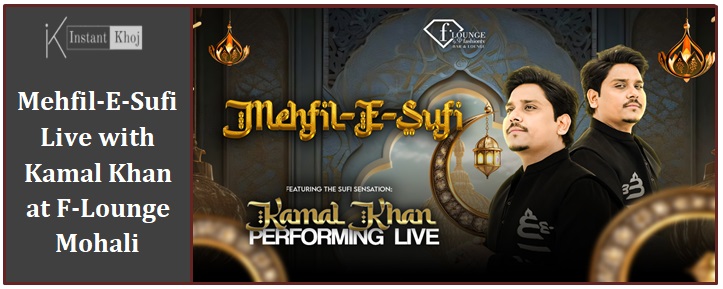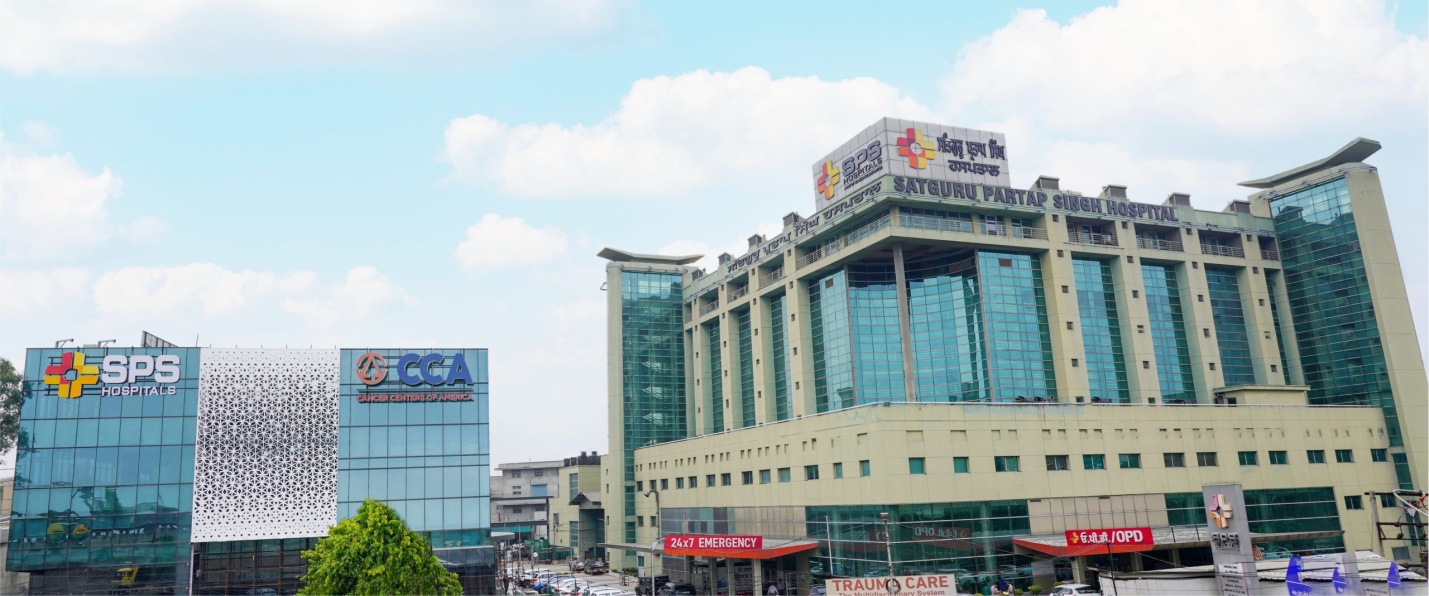Table of Content
María Corina Machado is one of the most prominent figures in contemporary Venezuelan politics. She has become a symbol of resistance, hope, and struggle for democracy in a country long battered by economic collapse, political repression, and polarization. In 2025 she was awarded the Nobel Peace Prize for her tireless work in defending democratic rights in Venezuela.
This article aims to give you a full, clear, and easy-to-understand portrait of her life, her beliefs, her struggles, and her impact. After reading this, you should have a solid understanding of who she is and why she matters.
Early Life and Education
Birth and Family
María Corina Machado Parisca was born on October 7, 1967, in Caracas, Venezuela.
Her father, Henrique Machado Zuloaga, was a businessman in Venezuela’s steel industry. Her mother, Corina Parisca, was a psychologist.
She is the eldest of four daughters in her family.
Education
Machado studied industrial engineering at Andrés Bello Catholic University (Venezuela).
Later, she also earned a master’s degree in finance from the Instituto de Estudios Superiores de Administración (IESA).
Early humanitarian work
In 1992, she founded the Atenea Foundation, an organization aimed at helping street children in Caracas.
This early work shows that even before her political rise, she was concerned with social issues and vulnerable people.
Entry into Civic and Political Life
Súmate and election monitoring
In 2002, Machado co-founded Súmate, a nonprofit organization that promotes free and fair elections and trains citizens in electoral oversight.
Through Súmate, she pushed for citizen participation in elections, transparency, and accountability.
Challenges and risks
Her activism made her a target. She faced accusations, death threats, and political pressure.
She had to send her children abroad at times for safety.
First steps into party politics
Machado gradually moved from civil society into formal politics. She helped found the political party Vente Venezuela in 2013, which she leads as National Coordinator.
She also joined the broader opposition platform Soy Venezuela, bringing together various pro-democracy groups.
National Assembly (2011-2014) and Expulsion
In 2010, María Corina Machado ran for a seat in the National Assembly (Venezuelan legislature) and won, obtaining a record number of votes among all candidates at that time.
She served from January 2011 until March 2014.
During her time in the Assembly, she became known for speaking strongly against abuses by the executive branch, denouncing corruption, repression, and human rights violations.
Expulsion / Stripping of seat
In 2014, she was expelled from her legislative seat under controversial circumstances. The regime accused her of institutional violations. Many observers believe the move was politically motivated to silence her voice.
Rise as Opposition Leader & 2023-2024 Events
After being removed from the Assembly, Machado continued political work from outside. She became a central figure in uniting opposition forces.
Opposition primary 2023
In October 2023, she ran in the opposition primary for the 2024 presidential election and won overwhelmingly (about 92.3 % of the vote).
However, shortly before, she was disqualified from public office by Venezuela’s electoral authority (and allied courts), barring her from participating in the election.
Supporting a substitute candidate
Since she could not run herself, she threw her support behind Edmundo González Urrutia (or earlier, briefly, Corina Yoris) as a proxy candidate.
Opposition claims and data collected by independent observers suggested that González may have won by a large margin, but the regime refused to publish detailed results and instead claimed Maduro won.
Going into hiding
After the disputed election, Machado began living in hiding inside Venezuela for security reasons.
Despite that, she made brief public appearances—most notably at protests before Maduro’s inauguration (January 2025)—and was briefly detained then released.
Nobel Peace Prize 2025 & Global Recognition
In 2025, María Corina Machado was awarded the Nobel Peace Prize.
The Nobel Committee honored her “for her tireless work promoting democratic rights for the people of Venezuela and for her struggle to achieve a just and peaceful transition from dictatorship to democracy.”
The Committee praised her for keeping “the flame of democracy burning amidst a growing darkness.”
This prize not only honors her personally but brings international attention to the crisis in Venezuela, giving legitimacy to the struggles of many Venezuelans seeking freedom.
Key Beliefs, Style, and Public Image
Political ideology and views
Machado describes herself as a liberal who opposes discrimination.
She strongly criticizes the Maduro regime, calling it a “criminal mafia” that has looted public resources and repressed dissent.
She supports free markets, transparency, civil rights, institutional checks and balances, and the rule of law.
Public image & personality
Machado is often called Venezuela’s “Iron Lady” because of her firm stance, resilience, and refusal to compromise.
She is a very charismatic public speaker. At rallies, supporters see in her a strong symbol of hope and change.
Her being a woman in a male-dominated political sphere, and an engineer by profession, makes her stand out in Venezuela.
Challenges and dangers
Because of her high profile, she faces constant risks: threats, surveillance, attempts to suppress her voice.
Her safety situation forces her to live in hiding, limit her public presence, and rely heavily on secure means of communication.
Impact and Legacy (So Far)
Machado has reinvigorated Venezuelan opposition politics, helping unify various parties and movements around pro-democracy goals.
Her voice carries weight domestically and internationally, bringing attention to human rights abuses, election fraud, and economic collapse in Venezuela.
The Nobel Prize amplifies her message. It gives moral support to many Venezuelans and encourages international pressure on the regime.
Even in hiding, she continues organizing, communicating, giving direction to the opposition, and crafting strategies for peaceful transition.
Her story is still unfolding. Whether she sees Venezuela through to a new, freer chapter or not, she already occupies a central place in her country’s struggle for democracy.
Frequently Asked Questions (FAQ)
Q1. Why was María Corina Machado disqualified from running for president?
A: The Venezuelan electoral authority and allied courts barred her from holding public office, citing administrative or legal violations. Many observers consider this a politically motivated move to prevent her from running.
Q2. Who did she support when she could not run?
A: She first backed Corina Yoris, but when that candidacy also faced issues, she supported Edmundo González Urrutia.
Q3. Is she living outside Venezuela now?
A: No. She is in hiding inside Venezuela for her safety, but she has not gone into exile.
Q4. What does the Nobel Peace Prize include?
A: The Nobel Peace Prize includes a medal, a diploma, and a monetary award (typically several million Swedish kronor).
Q5. What are the main challenges she faces?
A:
Repression and threats from the regime
Difficulty in coordinating openly while in hiding
Limited access to public platforms and media
Ensuring unity among opposition forces
Overcoming institutional barriers (courts, electoral bodies)
Q6. What are her long-term goals?
A:
Restore full democratic governance in Venezuela
Ensure fair and transparent elections
Strengthen institutions that protect human rights
Create policies for economic recovery and social justice
I hope this article gives you a clear, full, and engaging understanding of María Corina Machado: her background, her struggle, her vision, and her significance in Venezuela and beyond.
Also Read:
RBI Keeps Repo Rate Unchanged at 5.5%: What It Means for You
YouTube Premium Lite India Launch — Affordable Ad-Free Plan
Follow Blog’son Instantkhoj for more latest stories and trending topics.




